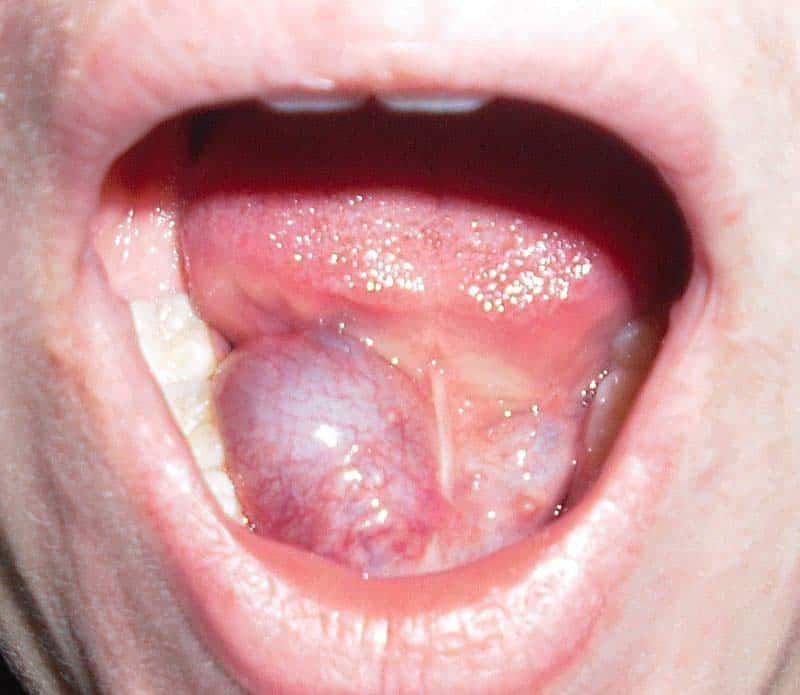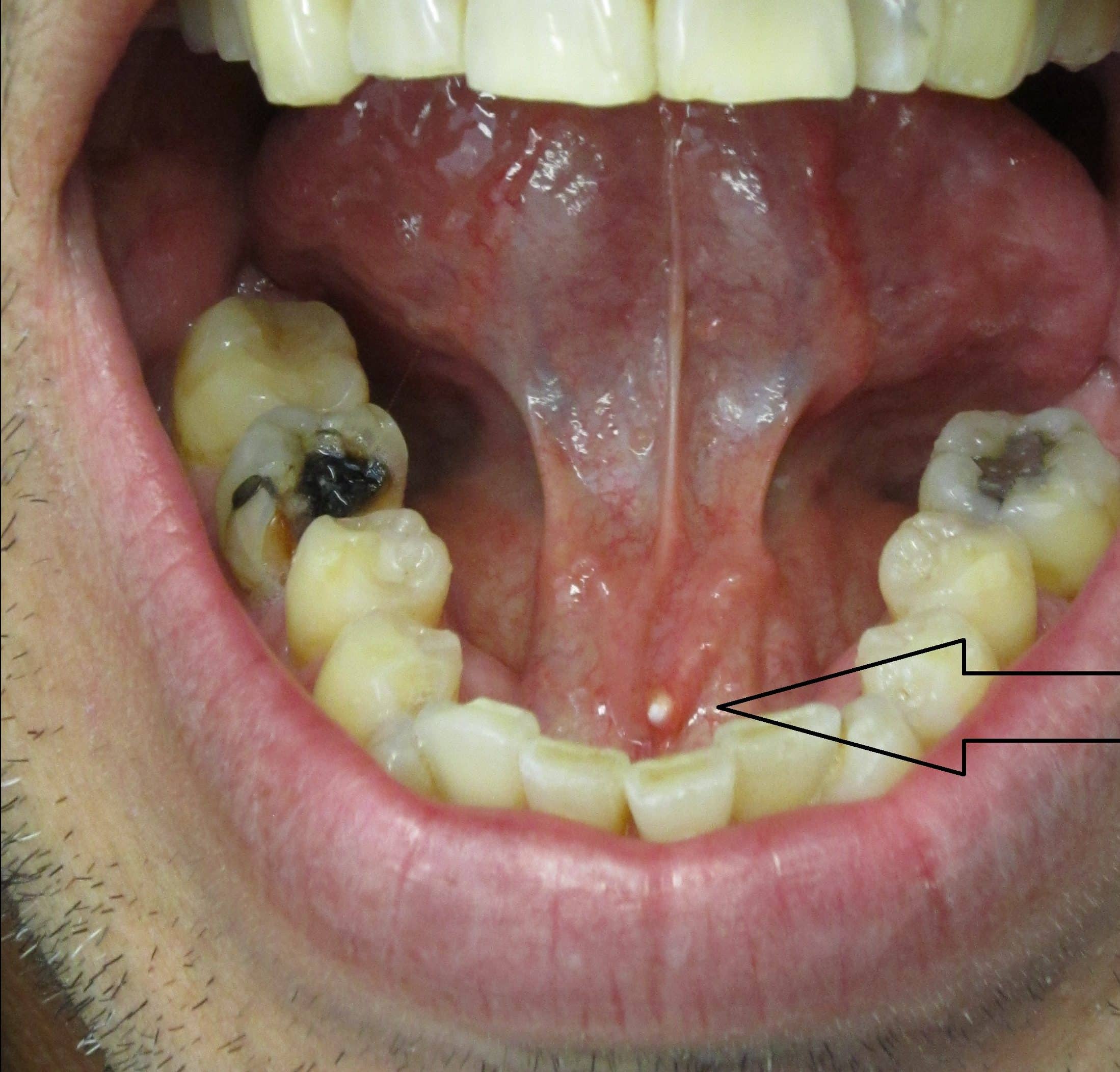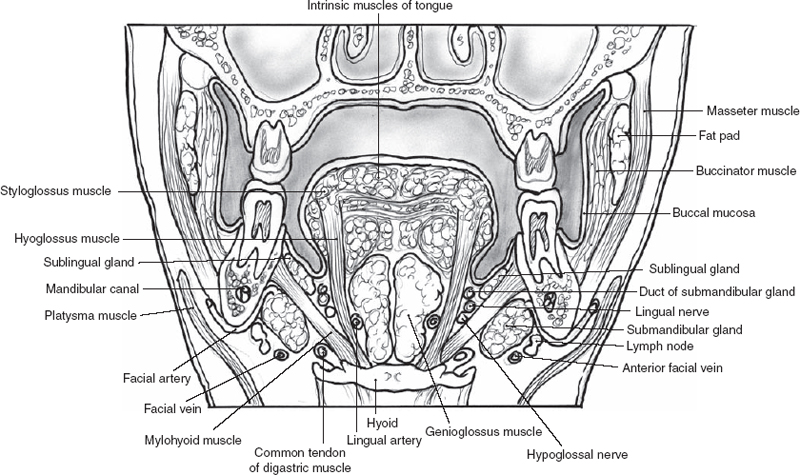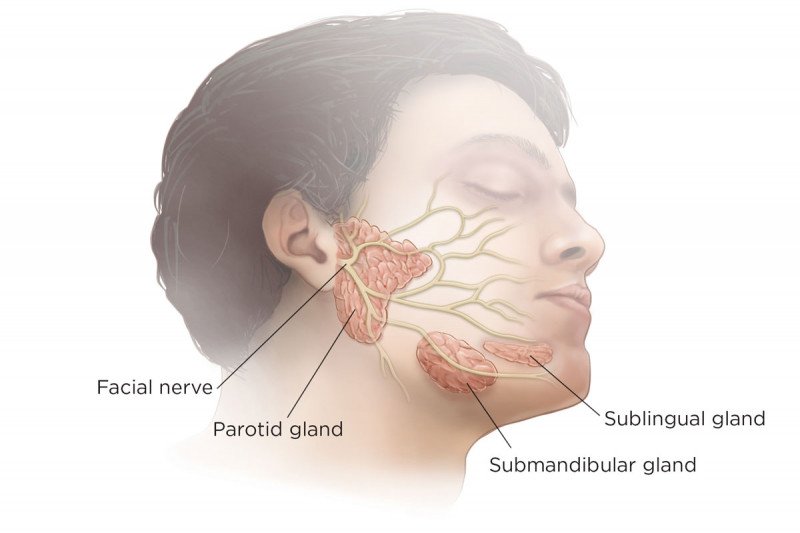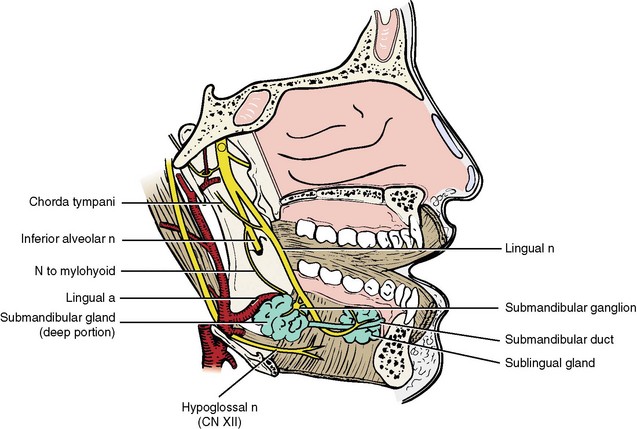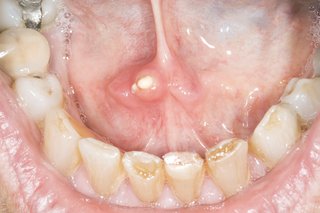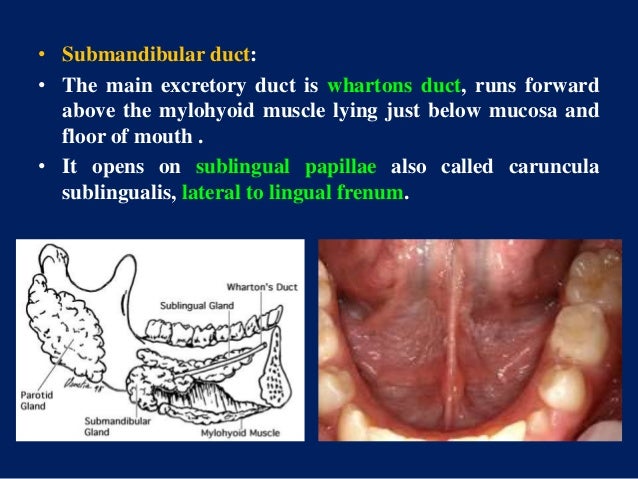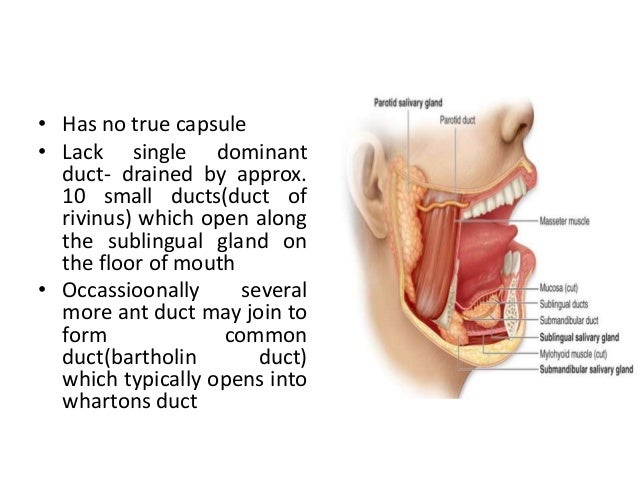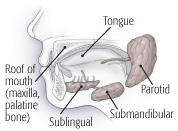Benign neoplasms of the floor of the mouth include lipomas benign mixed tumors pleomorphic adenomas of the sublingual gland and minor salivary glands and neural sheath tumors.
Drains the sublingual gland into the floor of the mouth.
The floor of the mouth is the third most common location for lipomas of the oral cavity after the cheek and tongue 24.
In other cases ranulas occur after trauma to the floor of the mouth like an oral surgery.
The submandibular gland is located medial to the angle of the mandible and it drains its mixture of serous and mucous saliva via the submandibular duct wharton duct into the mouth usually opening in a punctum located in the floor of mouth.
The submandibular gland makes 70 percent of the saliva and drains into the mouth from under the tongue.
The sublingual gland drains through many small ducts all which open into the floor of the mouth and are collectively called the duct of rivinus.
The sublingual caruncle is a small papilla near the midline of the floor of the mouth on each side of the lingual frenum.
There are also several hundred minor salivary glands throughout the mouth and throat.
Located in the upper part of each cheek close to the ear.
When there is a problem with the salivary.
The biggest is the main duct of the sublingual salivary gland called bartholin duct.
Saliva drains into the mouth through small tubes called ducts.
The sublingual glands are drained by 8 20 excretory ducts called the ducts of rivinus.
The salivary glands make saliva and release it into the mouth.
The floor of the mouth a slight fold called a sublingual papilla from which the ducts of the submandibular salivary glands open.
The sublingual gland is located below the tongue in the floor of the mouth.
The major salivary glands three pairs in total are found in and around your mouth and throat.
In human digestive system.
Running outward and backward from each sublingual papilla is a ridge the plica sublingualis that marks the upper edge of the sublingual under the tongue salivary gland and onto which most of the.
The sublingual gland makes 5 percent of the saliva and drains into the floor of the mouth.
The major salivary glands are the parotid submandibular and sublingual glands the parotid glands are located in front and beneath the ear.
The largest of all the sublingual duct of bartholin joins the submandibular duct to drain through the sublingual caruncle.
An injury can damage the ducts that move saliva from the salivary gland into the mouth causing a blockage.
A duct called stensen s duct drains saliva from the parotid gland into the mouth at the area of the upper cheeks.
